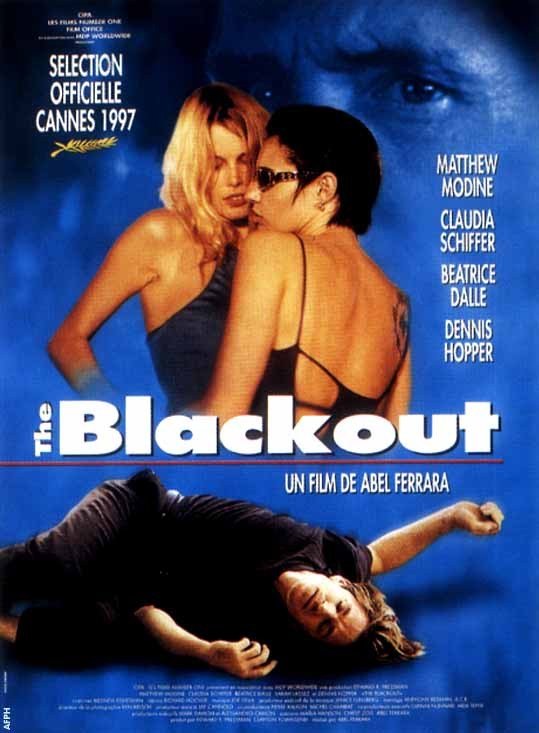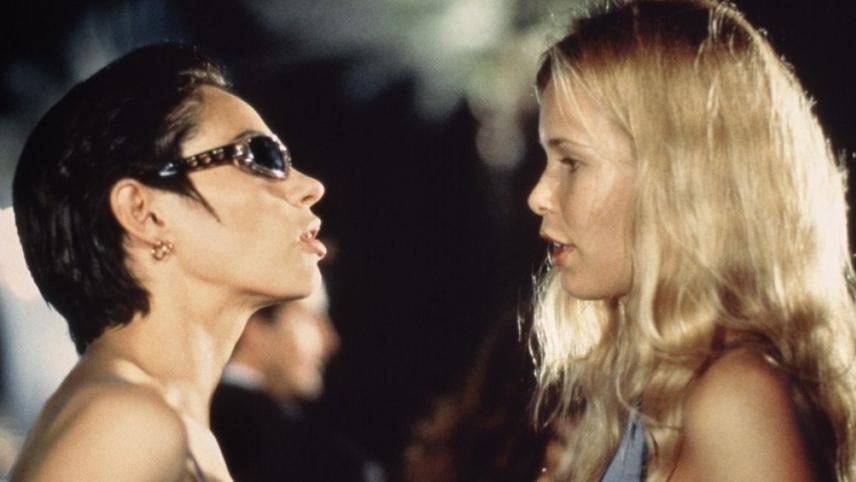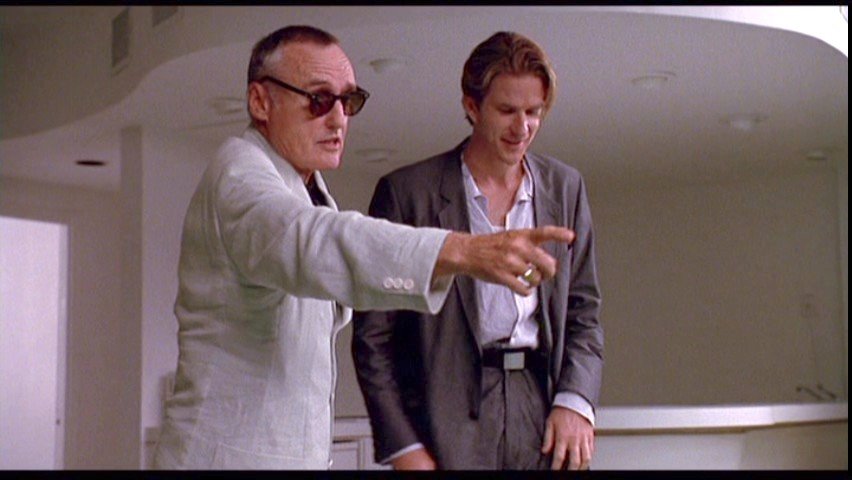WARNING: Contains spoilers for the film
The ending of The 400 Blows shows Antoine facing the utter hopelessness of his upcoming situation, represented by the vast unattainable terrains of the ocean, followed by a zoom-in on Antoine‘s face as he looks into the camera and freeze frame (presumably right before he shrugs). The Blackout takes this premise further – our main man Matty starts off in the film standing before the ocean like Antoine, but this time at night and this time he’s a full grown man. Matty doesn’t look into the camera, but out towards the dark view of the ocean. This is all we see initially in the film’s first scene, but the final scene finishes this off by showing Matty’s wife trying to pull him away from the ocean, but he is staunchly and aggressively adamant about giving himself a suicidal fate he deserves, then plunges himself into the waters and swims away from even her reach. Matty doesn’t just look out at his despair, he bathes in it, trying to futilely and swim through his problems head-on. The only direction now is through.
The final shot of the film seems to reveal the allure of the ocean for this character, which is the blackout itself – the blacking out of reality and accepting fantasy, perhaps with the assistance of life-blocking drugs. Matty has a problem with alcohol, which he uses to blackout the problems of his reality, which are caused by the alcohol itself – he’s distraught when he finds out his girlfriend, Annie, has gotten an abortion, but as she reveals through a taped phone message, he told her to through a drunken phone call that he apparently forgot about. This broken romance is just one aspect that results in sending him out of his mind and out to sea, where the final shot contains interspersed footage showing a fantasy involving Matty being reunited with a naked Annie 2, but not the original Annie.
After Matty’s humiliating separation from Annie over the abortion, he stumbles upon Annie 2 in a blackout state and quickly assigns her as a surrogate for his beloved Annie. Although she is a real person, she also becomes part of the fantasy as she playfully goes along with Matty’s identification of her, until Matty goes too far with his fantasy playing and ends up doing what he subconsciously and proverbially may have wanted to do to Annie – he strangles her to death.
Annie 2 is a fantasy version of Annie, and yet a fantasy version of this fantasy version appears at the end, totally nude and open to Matty’s love, identifiable as the usual male fantasy from a heart-broken man. She asks him teasingly “did you miss me?”, suggesting perhaps his suicide was successful and he has rejoined her in the afterlife or that his suicide wish had been fulfilled and he will spend the rest of his days with her in a blackout fantasy-driven stupor.
The only clue to the meaning of this night-time ocean is that the only other moment it’s shown is briefly during a subjectively abstract and cinematically clouded scene where Matty is intoxicated from crack in a dingy bathroom, soon after his relationship dissolution. The vast night-time ocean Matty swims aggressively into is the blackout of the rest of his life as he resorts back to alcohol and other drugs to help create a loving fantasy to override the harsh reality.
Such a dense examination into this trouble celebrity’s life wouldn’t have been so powerfully resonating if it weren’t for the incredibly bare and honest acting from Matthew Modine and the considerate directing from Abel Ferrara, who have helped craft this affecting story. On top of being an emotional insight in broken hearts, The Blackout is a commentary on technology’s dominance over the human experience — specifically set in the ‘90s — evoking videotape through the film’s content matter and design, relating its disposable nature to the life of Matty. Transience swarms his life, everything in it is fleeting (including his offspring) and his actions to subdue the pain only causes more pain that needs to be subdued. Matty doesn’t avoid this transient lifestyle, he embraces it fully so that it can envelope him in a hazed coddle. He heads straight into a life of utter temporality, of suicidal substance abuse, self-neglect, and self-hatred, choosing fantasy over reality, as dictated by the videotape culture that has now evolved and expanded in its technology and makes our lives seem more fragmented and make The Blackout feel even more perceptive of our culture’s increasing preference for falsity.





